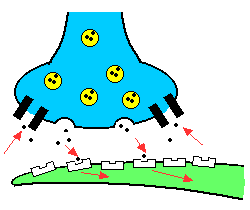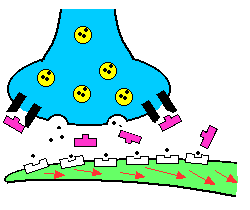by James Harper *** May 27, 2003 While researching depression something finally made sense. Work toward the opposite end! HAPPINESS. There is no disputing certain events in life can make a person become depressed. There is also no disputing certain events in life can make a person happy. If there were steps you could take to move toward happiness instead of depression, would you take those steps? Of course your answer is yes!
You can read books on meditation and Qigong to activate your brain to produce serotonin and other happy hormones which are practiced by thousands of happy meditation and Qigong practitioners.
The Truth About Depression
Depression has been very firmly fixed in the mind of America and the world as a physically-caused disease, and anyone who gets depressed for more than what might be considered a "normal" period of time might believe they have this disease. In fact, if you are reading this article, you may be curious, too.
But has depression, as a physical disorder, actually been proven to exist? And can it be treated with drugs, as so many drug companies assert?
Depression as a Disorder
Depression Disorder is defined by the Diagnostic and Statistical Manual of Mental Disorders (DSM), published by the American Psychiatric Association, this way:
The essential feature of a Major Depressive Episode is a period of at least 2 weeks during which there is either depressed mood or the loss of interest or pleasure in nearly all activities. In children and adolescents, the mood may be irritable rather than sad. The individual must also experience at least four additional symptoms drawn from a list that includes major changes in appetite or weight, sleep, and psychomotor [of or relating to movement or muscular activity associated with mental processes] activity; decreased energy; feelings of worthlessness or guilt; difficulty thinking, concentrating, or making decisions; or recurrent thoughts of death or suicidal ideation, plans, or attempts."
The above has a ring of truth to it -- but only because the DSM authors have taken various manifestations of depression and decided what exactly constitutes a "depression disorder". They do not state their reasoning, so it's difficult to see exactly how they drew the line between someone who is simply depressed and someone who has a "disorder".
But now that we've seen how the DSM defines depression disorder, what do they say about what causes it?
Searching for Physical Causes
For the answer, let's go back to the DSM. The only information given there as to physical causes of depression is:
Neurotransmitters implicated in the pathophysiology [study of the physical effects of a disease] of a Major Depressive Episode include norepinephrine, serotonin, acetylchlorine, dopamine, and gamma-aminobutryric acid.
What does all that mean? Here's a simple explanation.
A neurotransmitter is a chemical that helps transmit nerve impulses through the nervous system. There are many different neurotransmitters used by the body. What the DSM definition is saying is that, by some method, the neurotransmitter chemicals known as norepinephrine, serotonin, acetylchlorine, dopamine, and gamma-aminobutryric acid seemed to be lower in some depressed people, or higher in non-depressed people. See Biochemical Recovery
Note carefully the use of the word implicated in the DSM definition, however. And therein is the first clue, for it has never been clinically proven that depression is based in neurotransmitters. We repeat: Never. And believe it or not, there is not a doctor on Earth that will disagree with that statement.
Which leads to the conclusion that a physical cause for depression has never been isolated. How, then, did an entire industry become fixated on neurotransmitters as a cause of depression?
History
In 1973, two scientists named Candice Pert and S. H. Snyder made a discovery, published in Science magazine, that there were definite, specific nerve receptacles for opiate drugs (opiate drugs, such as opium and marijuana, have a tranquilizing, euphoric effect) . It was immediately wondered why the body would have such receptacles -- does the body naturally expect opiate drugs? A few years later, the answer was found: It was discovered that the body had its own opiate chemicals -- the very neurotransmitters later targeted by anti-depressant drugs, listed above in the DSM definition.
The way that a neurotransmitter chemical operates normally is, it is passed along from one nerve to another. A bit of it is sent out at a time from one nerve to the next. After a bit is sent out and received by the next nerve, any of the neurotransmitter remaining between the nerves is taken back by the first nerve, a process called reuptake.
The question was then posted that, if levels of these "opiate" neurotransmitters were elevated, wouldn't it give the person a sense of well-being? It was also theorized that depressed people might not have enough of these chemicals operating in their system, hence the depression. It was also realized that the level of specific neurotransmitters could be raised by inhibiting the reuptake process, causing the neurotransmitter to continue in a steady stream instead of intermittently.
Investigation Stops
That was in the late nineteen-seventies and early nineteen-eighties, and that's where the whole story takes a very nasty turn. For if the investigators had proceeded as they should have, with scientific methods and principals, the following would have happened:
Instead, what happened was that some money-minded individuals realized what might happen if someone announced a "cure for depression". They convinced other like-minded individuals. And there the science stopped, and the profits and lies began.
The theory that certain neurotransmitters are responsible for depression remains a theory to this day -- completely unproven. In fact, if you check the literature for any antidepressant drug, it will say that a) the true cause of depression is unknown, but is believed to be caused by the lack of certain neurotransmitters, and b) the exact action of their drug is unknown. You will find this in each and every case, drug for drug.
How could it have happened that depression's causes could be so admittedly unknown, yet drug companies march boldly forward with "cures"?
Profits Over Science
In 1987, a major drug company released the first anti-depressant drug to specifically target the neurotransmitter serotonin, with a marketing budget that would have ended hunger in most small countries. This was the first of a class of drugs known as Selective Serotonin Reuptake Inhibitors (SSRIs). The word "selective" in this name simply referred to the fact that the drug only "selects" serotonin, and not other neurotransmitters.
The release of this drug was fraught with fraud and deceit. From the beginning of the drug's development, the manufacturing pharmaceutical company had direct ties to the Food and Drug Administration, the government agency responsible for approving a drug for release. The company managed to force the drug through the release process by altering test results and hiding information. Two months prior to the drug's release, there had already been 27 deaths in the drug's clinical trials. Yet the FDA approved it, and it was released. By 1992, more than 28,600 adverse reactions to this drug, plus an additional 1,700 deaths, had been reported to the FDA. It is now 2003, and many, many more adverse reactions -- and deaths -- have been reported. Yet this drug remains firmly on the market. The answer to the question, "Why?" lies in the fact that the drug made billions of dollars, and became the best-selling drug of all time. It made pharmaceutical stocks a very popular trade amongst investors. Again, if you announce, with enough conviction, that you have a "cure for depression", people will buy it. The lie, of course, was that it was not a cure. It was not even a treatment. It was a highly dangerous chemical based on very loose theory. Of course, once it was so successful, other drugs of the same type were released by other companies hoping to cash in on the first drug's success. The antidepressant market has become a force not to be reckoned with. The real problem is, of course, that a cause of depression was never investigated and found by the original investigators. And they're not looking, now. The drug companies continue to rake in billions of dollars based on flawed data and heavy speculation. What Should You Do? If you have not started on a course of medication for your depression, we urge you not to do so. Please do not become another victim of a well-financed scam aimed at cashing in on your troubles. If you can easily spot the source of your depression, such as loss of a loved one, job loss etc, those can be addressed individually. The depression will lift in time but it does take a toll on the body. Stress and depression does wear your body down. You probably do not need anyone to tell you that. You can feel it. This is the area where psychiatry and many physicians miss the mark. They generally see you after you have been depressed for some time and you are physically worn out. They are trying to cure a normal physical let down with medications that were not meant to treat this body condition. Feeling depressed over a loss or the threat of a loss IS NORMAL. You are not alone with that feeling. Try changing your routines, exercise, diet and vitamins will generally help. If you around someone that can only offer sympathy, tell them to stop it. Has the sympathy made you feel better? Understanding or empathy is one thing, sympathy is another. You can get out of the depression, YOU need to decide to do it. This might seem harsh, it might seem impossible, it might seem there is no way out, THERE IS. We will be posting shortly alternatives or things you can do to defeat depression. Real solutions to a real problem. We are not denying that you feel how you do. 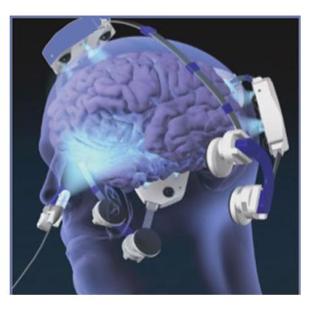 Healing by Meditation with Photobiomodulation 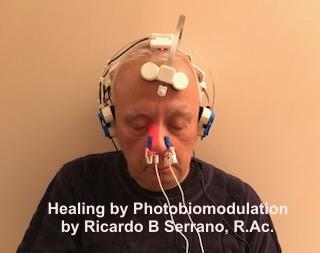 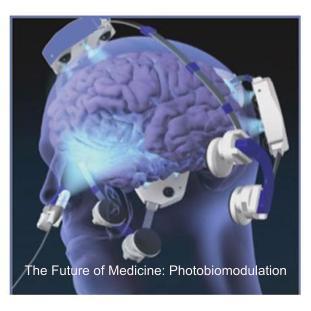 References: 2. Shining light on the head: Photobiomodulation for brain disorders 3. Healing Alzheimer's by Light Therapy If you have already started on a course of medication for depression, we urge you to first read for yourself the full list of side effects for the drug you are taking. You can proceed to our front page to find the drug you are taking, and follow the links to its side effects. We then urge you to consult your physician and talk about discontinuing the drug. This can be far easier said than done, however, because many of these drugs are addictive and have withdrawal symptoms. There is a way to withdraw from these drugs safely, however -- click here to find out how. Once you are off the drug, you will probably find you feel far better than you did while you were on it. That's saying something for a drug that's supposed to treat depression. Conclusion Finding the right supplement can be difficult. Below you can read about glutathione and its role in rebuilding the body. Hope you find it helpful. In the article below, glutathione and various antidepressants were used to determine a method of treatment for depression. Both glutathione and the antidepressants were able to relieve depression. (Glutathione and the antidepressants were not used in combination with each other) To define a few words to make the article easier to read. Glutathione: Glutathione is found in cells. The levels of glutathione can vary in the cells. SSRIs, other medications and toxins of all type lower the glutathione levels in your cells. Glutathione is the most important part of the cells when it comes to cleaning out all toxins. Vitamins will not even be absorbed into the cells if the glutathione levels are too low. GSH: GSH is glutathione. Immunocal raises glutathione levels in the cells by presenting the cells with the 3 amino acids necessary for the cells to make glutathione. The 3 amino acids must be presented to the cells in the proper order or sequence for the cells to use them to make glutathione. Substrate: Substance that is acted upon by an enzyme Glutathione as a cerebral substrate in depressive behavior. Behavior depression through inescapable foot shock stress in Swiss albino mice was measured on the basis of their performance in an open field test (OFT) and a forced swim test (FST). Glutathione (GSH) and various antidepressants (impipramine, maprotiline, fluvoxamine, trazodone, and alprazolam) were able to, either fully or partly prevent and/or reverse the shock-induced behavioral depression. The Glutathione (GSH) level was measured in the cerebral cortex, cerebellum, brain stem, and the hypothalamus in shocked mice to ascertain a possible correlation between brain GSH and stress-induced depression, under conditions of preshock and postshock antidepressant treatments as well as in the absence of the drugs. There was an appreciable depletion of cortical Glutathione (GSH) in shocked mice that corrected to varying degrees by the different antidepressants. The result suggest a close link between stress-induced behavioral depression, increased monoaminergic utilization, oxidative stress, and brain Glutathione (GSH). Source: Pharmacology Biochemical Behavior 1994 Aug; 48 (4):845-51 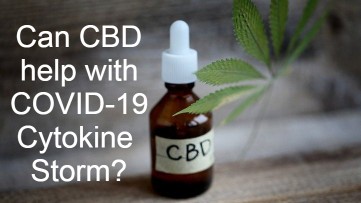   Shen is Light in the Eyes  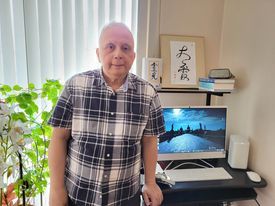           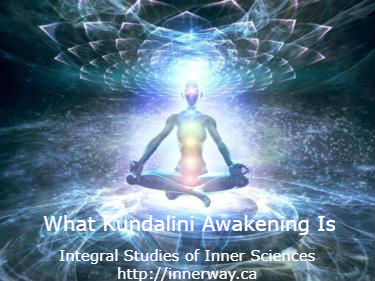        Meditation and Qigong Books and DVDs to awaken and embody the blissful Christ consciousness within you: The Meditation and Qigong Mastery book at https://www.amazon.com/dp/0987781901 Return to Oneness with the Tao book at https://www.amazon.com/dp/0987781960 Return to Oneness with Spirit through Pan Gu Shen Gong book at https://www.amazon.com/dp/0987781979 Keys to Healing and Self-Mastery according to the Hathors book at Return to Oneness with Shiva book at Oneness with Shiva book at The Cure & Cause of Cancer book at
To order the Maitreya (Shiva) Shen Gong & Omkabah Heart Lightbody Activation DVDs with shipping, cost $60, please click the Paypal button below: |

